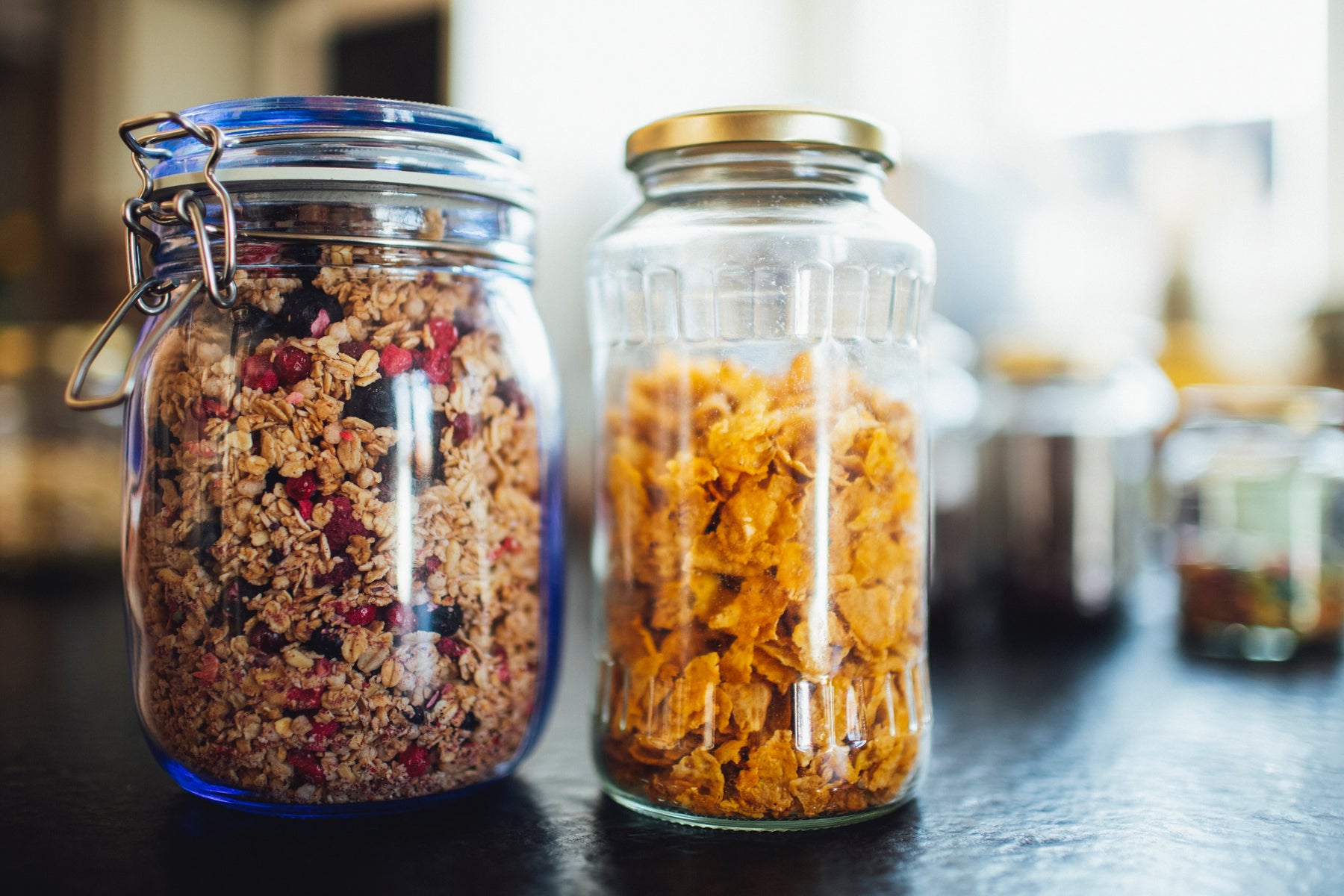
10 tips to help with your Plastic Free July
Plastic Free July is about considering your impact and making small steps towards living more lightly. It’s not about being perfectly zero-waste - for most of us that sets an unrealistic expectation - but there are lots of easy things we can do, right now, to lower our impact on the environment.
So, here are our top 10 tips to help you lower your plastic consumption. We would encourage you to pull out a couple of ideas that resonate, that you could implement fairly easily, and start there.
1. Make sensible choices in the supermarket
We’re all guilty of shopping on autopilot so try to bring a little mindfulness to your next grocery shop. Consider if there’s an eco-alternative for each item you put in your trolley.
- Switch to LED lightbulbs
- Choose loose leaf tea over tea bags
- Use reusable string bags or compostable bags to carry your fresh produce
- Buy in bulk thus avoiding snack size containers (such as baby food pouches and yoghurt containers) and you might save yourself a few dollars too
2. Keep reusable bags handy
We’re one-year on from the plastic bag ban in New Zealand and most kiwis have a good supply of reusable bags. The trick is making sure they’re there when you need them!
- Have a fold away bag in your handbag, work bag and glove box
- Keep your set of grocery shopping reusable bags in your car boot
- Keep a set of string bags for carrying produce with your grocery shopping bags
3. Keep clean reusable food storage options handy
In the same way that we have gotten used to bringing our own bags, many people are starting to bring their own containers. Supermarkets, butchers, cafes and markets are often perfectly happy to decanter their fresh products into your reusable container.
- Always carry a refillable water bottle - New Zealanders go through approx. 5 million packaged drinks per day and only 35-45% of the recyclable cans and bottles are actually recycled
- Keep a good quality reusable food container on hand and throw in a metal fork in so your not tempted to grab a plastic version on the run
- Stash an empty keep cup in your car so you can easily avoid the single-use takeaway cup next time you need your coffee fix
4. Equip yourself with convenient food wraps and storage options for taking food back out of the house
Schools are increasingly encouraging "nude food lunch boxes" so let’s follow our kids’ example! Invest in a lunch box that you love, whether it’s masculine stainless steel, funky bamboo, or classic glass (even a good quality plastic box will do it you’re committed to using it over again). And pair that with beeswax wraps, compostable cling wrap, compostable snack/sandwich bags so that you have all the convenience of traditional food wraps with none of the guilt.
5. Take a closer look at your cleaning supplies
Can you swap your cloths for more natural ones (perhaps made from viscoes or cotton)? Do you really need disposable wipes or can you switch to better quality, washable cloths? We’re lucky to have local manufacturers that offer eco product ranges that are generally gentler on people and planet. You could even have a go at making your own with vinegar, lemons and baking soda.
6. Make some easy swaps in the bathroom
Swap plastic for bamboo or stainless steel alternatives – particularly for those products that have short lifespans (like your toothbrush, razor, and floss picks). Swap liquid soap for good ol’ fashion bar soap (even better choose a bar soap with simple kraft paper packaging). You can even get bar shampoo now. If you’re not ready to leave liquid soap or shampoo behind consider visiting a refillery with your reusable bottles.
7. Eat seasonal fresh food and shop local
Not only is eating fresh food healthier but buying produce that’s in season is more economical too. And it supports New Zealand producers at a time when our economy needs all the help it can get. Fresh local food leaves a smaller carbon footprint but is also less likely to be highly packaged for transit.
8. Grow your own
Sustainability and self-sufficiency go hand-in-hand. Grow fruit, herbs and veges in your own garden or patio planters to supplement what needs to be store bought. It’s cheap, healthy, eco and oh so satisfying!
9. Get handy at home
Our consumer lifestyle filled with disposable products has made us into waste creating machines! Practice mindful disposal; every time you walk to the rubbish bin consider whether the item about to be trashed could be reused or recycled. And have a go at fixing things before throwing them out.
10. Opt for clothes and textiles made from natural fibres
We’re lucky in New Zealand to have an abundance of New Zealand wool-based clothing brands. Choose natural textiles like merino, unbleached 100% organic cotton or bamboo and feel the difference.

